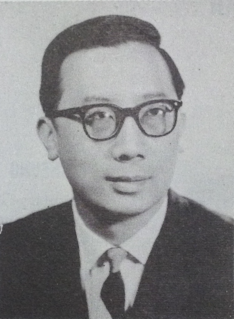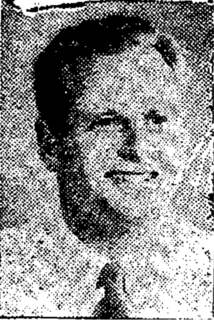Related Research Articles

The Reform Club of Hong Kong was one of the oldest political organisations in Hong Kong, existing from 1949 until the mid-1990s. Established by expatriates who were concerned about the Young Plan proposed by Governor Mark Aitchison Young in 1949, the Reform Club was the first semi-political party to contest in the Urban Council elections, with its longtime chairman Brook Bernacchi serving on the Council for about forty years.

The Hong Kong Civic Association is one of the longest-existing political organisations in Hong Kong. Established in 1954 by a group of teachers, professionals and businessmen, the Civic Association was one of the two semi-political parties to participate in the Urban Council elections since the 1950s, alongside Reform Club of Hong Kong. They were the only two organisations closest to the opposition parties dominated in the post-war colonial period before the expansion of the franchise in the 1980s.

Hilton Cheong-Leen, CBE, JP was a Hong Kong politician and businessman. He is the longest uninterrupted serving elected officeholder in Hong Kong history as an elected member of the Urban Council of Hong Kong for 34 years from 1957 to 1991. He was also the first Chinese chairman of the council from 1981 to 1986. He had been a long-time chairman of the Hong Kong Civic Association, one of the two quasi-opposition political groups in the post-war Urban Council. From 1973 to 1979, he was appointed unofficial member of the Legislative Council of Hong Kong. From 1985 to 1988, he was again among the first elected members of the Legislative Council through Urban Council constituency in the first Legislative Council election in 1985.
The Hong Kong Chinese Reform Association is a pro-Beijing political organisation established in 1949 in Hong Kong. It was one of the three pillars of the pro-Communist leftist camp throughout most of the time in Hong Kong under colonial rule.

The 1983 Hong Kong Urban Council election was held on 8 March 1983 for the elected seats of the Urban Council. It marked the centenary of the establishment of the Urban Council and the largely reformed electoral methods with the creation of the district-based constituencies and massive expansion of the electorate.

The 1956 Hong Kong Urban Council election was held on 7 March 1956. The elected seats were extended from four to eight seats and the election was for the 6 of the 8 elected seats of the Urban Council of Hong Kong. 6,040 of the 14,682, about 41 per cent of the eligible voters cast their ballots in this election, highest turnout rate in the history of the Urban Council elections.

The 1957 Hong Kong Urban Council election was held on 8 March 1957 for the four of the eight elected seats of the Urban Council of Hong Kong. Since this election the term of the members was extended from two years to four years.

The 1959 Hong Kong Urban Council election was held on 3 March 1959 for the four of the eight elected seats of the Urban Council of Hong Kong. The turnout rate dropped to 30.7 per cent but there were still 7,236 of the 23,584 eligible voters cast their votes, 5,354 ballots from Hong Kong Island and 1,882 from Kowloon. Ernest Charles Wong, chairman of the Tung Wah Group of Hospitals won a seat for the Hong Kong Civic Association of which Philip Au of the Reform Club of Hong Kong retired from, while the other three Club incumbents were re-elected.

The 1961 Hong Kong Urban Council election was supposed to be held in March 1961 for the four of the eight elected seats of the Urban Council of Hong Kong.

The 1963 Hong Kong Urban Council election was held on 7 March 1963 for the four of the eight elected seats of the Urban Council of Hong Kong. Elsie Elliott, educator and social activist was first elected to the council on the Reform Club ticket, while lawyer Cheung Wing-in became the new elected member for the Hong Kong Civic Association.

The 1965 Hong Kong Urban Council election was held on 3 March 1965 for the six of the ten elected seats of the Urban Council of Hong Kong after the membership of the elected members increased from eight to ten.

The 1971 Hong Kong Urban Council election was held on 3 March 1971 for the five of the ten elected seats of the Urban Council of Hong Kong. 10,047 of the 37,778 eligible voters cast their votes, the turnout rate was 26.6 per cent, slightly better than the previous election in 1969.

The 1988 Hong Kong District Board elections were the third district board elections held on 10 March 1988. Election was held to all 19 districts of Hong Kong, for 264 members from directly elected constituencies while there were 141 appointed seats and respectively 30 and 27 ex officio members representing the Urban Council and rural committees in New Territories.

The 1985 Hong Kong District Board elections were the second district board elections held on 7 March 1985 for the all 19 districts of Hong Kong.

The 1973 Hong Kong Urban Council election was held on 7 March 1973 for the seven of the 12 elected seats of the Urban Council of Hong Kong. Two new elected seats were created in the election. 8,675 eligible voters cast their votes, the turnout rate was 27.64 per cent.

Percy Chen was a Chinese Trinidadian lawyer of Hakka descent, as well as a journalist, businessman and political activist.
Chan Shu-woon was an educator in China, Hong Kong and the United States.

Alison Mary Spencer Bell Fok, JP was a Scottish-born Hong Kong doctor and politician. She was the first woman to be elected to the Urban Council of Hong Kong.
Joseph Chan Yuek-sut, BBS is the former chairman and member of the Southern District Council and member of the Urban Council of Hong Kong.

Ricky Or Yiu-lam is a Hong Kong politician and a former member of the Sai Kung District Council for Kwong Ming. He is the former chairman of the Concern Group for Tseung Kwan O People's Livelihood and a former member of the Democratic Party.
References
- ↑ "撤銷控陳樹桓案 法官要解釋理由". Tak Kung Pao. 8 July 1963. p. 4.
- ↑ "控陳樹桓競選議員違例案 原訴人請求撤回控訴". Kung Sheung Daily News. 8 July 1963. p. 6.
- ↑ Reform Club of Hong Kong (1949). Memorandum and articles of Association of the Reform Club of Hong Kong : incorporated the 20th day of January, 1949. Ts'o & Hodgson.
- ↑ Urban Council (1970). Annual Departmental Reports. Hong Kong: Government Printer. p. 5.